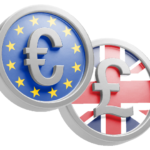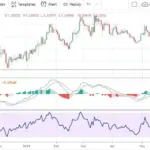In an era where digital transactions dominate and data privacy concerns are at an all-time high, privacy coins have emerged as a powerful — and controversial — innovation in the cryptocurrency space.
Designed to protect users’ financial privacy, these coins offer anonymity and untraceable transactions. But their very strength has also drawn the attention of global regulators, sparking an ongoing debate:
What Are Privacy Coins?
Privacy coins are cryptocurrencies built with advanced cryptographic techniques that conceal user identities and transaction details.
Unlike Bitcoin or Ethereum, where every transaction is publicly visible on the blockchain, privacy coins aim to keep transactions confidential and untraceable.
Some of the most well-known privacy coins include:
- Monero (XMR) – Uses ring signatures and stealth addresses to hide senders, receivers, and transaction amounts.
- Zcash (ZEC) – Offers selective transparency using zero-knowledge proofs (zk-SNARKs), allowing users to choose between public and private transactions.
- Dash (DASH) – Includes an optional privacy feature called PrivateSend, enhancing transactional confidentiality.
These technologies are not just about secrecy — they represent a philosophical stance on financial freedom and the right to privacy in the digital age.
Why Privacy Coins Matter
- Financial Freedom and Security
Privacy coins allow individuals to protect their financial data from surveillance, hacking, or unwanted scrutiny. In countries with strict capital controls or political instability, they can serve as a lifeline for personal freedom. - Data Protection
In a world where personal data is constantly collected and monetized, privacy-focused cryptocurrencies empower users to control their information. - True Decentralization
By eliminating traceability, privacy coins align with the original ethos of cryptocurrency — a decentralized, trustless financial system free from third-party oversight.
The Regulatory Challenge
However, the same anonymity that protects users also raises red flags for regulators.
Governments and financial watchdogs worry that privacy coins can facilitate money laundering, terrorism financing, and tax evasion.
As a result:
- Several exchanges, including those in Japan, South Korea, and the United Kingdom, have delisted privacy coins to comply with anti-money laundering (AML) laws.
- The Financial Action Task Force (FATF) continues to pressure exchanges globally to implement the “travel rule”, requiring the sharing of transaction details between institutions — a rule that’s difficult to apply to privacy coins.
These pressures create a regulatory gray zone, where innovation and compliance often clash.
Finding the Balance: Innovation Meets Regulation
The future of privacy coins hinges on striking a balance between user privacy and regulatory oversight.
Some possible pathways include:
- Selective Transparency:
Technologies like Zcash’s optional disclosure model could serve as a compromise, allowing users to reveal transaction data when required by law — without giving up complete privacy. - Regulatory Sandboxes:
Governments could create testing environments where developers and regulators collaborate to explore privacy-preserving tools that still meet compliance standards. - Decentralized Identity (DID):
Integrating DID frameworks may enable anonymous yet verifiable transactions, allowing users to prove legitimacy without revealing personal information.
Such solutions could pave the way for responsible innovation that satisfies both privacy advocates and regulators.
The Road Ahead
Privacy coins represent a fundamental tension in the digital economy: the desire for privacy versus the need for oversight.
As technology and policy evolve, the debate will likely intensify — especially as governments develop their own Central Bank Digital Currencies (CBDCs), which could provide transparency at the cost of anonymity.
In this shifting landscape, privacy coins may not disappear — they may simply adapt.
By combining cryptographic innovation with thoughtful regulation, the crypto industry has a chance to create a future where privacy and accountability coexist.
Conclusion
Privacy coins are more than just digital assets — they are a symbol of the struggle between personal freedom and regulatory control.
Their future depends not on choosing one side over the other, but on building systems where both can thrive.















